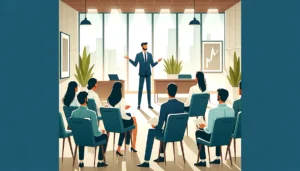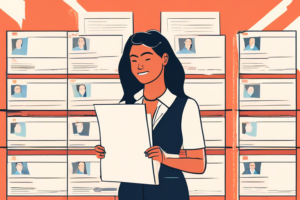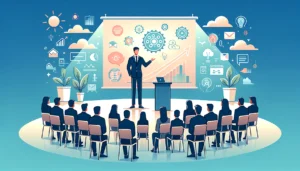Simon Mounsey of Agilisys on the importance of employee ownership and engagement
- 11 Min Read
Simon Mounsey, HR Director at Agilisys, explores how employee ownership and engagement can benefit businesses, and explains how to go about giving your employees a stake in how the company is run.
- Author: HRD Connect
- Date published: Jan 26, 2017
- Categories
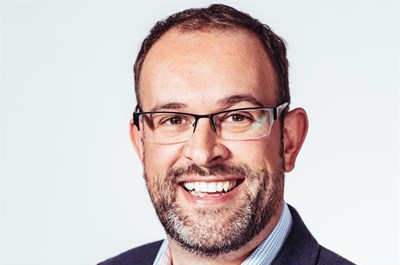
Simon Mounsey, HR Director at Agilisys, talks about how organisations can go about attracting and retaining 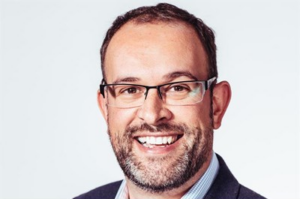 top talent, and respond to the challenges posed by digital transformation.
top talent, and respond to the challenges posed by digital transformation.
He also explores how employee ownership and engagement can benefit businesses, and explains how to go about giving your employees a stake in how the company is run.
Mounsey was speaking to HRD Connect ahead of his session at HRD Summit 2017.
What is the biggest challenge and opportunity currently facing the HR profession, in your opinion?
Attracting and retaining the top talent to an organisation. I think this has always been the case, but the challenge now is that the next generation is looking for really interesting work, and in addition to this, work that provides them with a good balance between their job and life outside work.
They want autonomy, they want to feel like they can make a difference within the organisation – that’s quite a set of expectations from top talent. People want so much more out of their role, and organisations really have to adapt what they’re offering to meet those expectations.
This does give HR an opportunity; of all the parts of the business, I think they are the best placed to help influence the culture of an organisation. HR can make sure that a business is really clear on what its employee value proposition is, and also help make sure that both the talent and the organisation are meeting their sides of the deal. So I think that is both a challenge and an opportunity.
How do you think that organisations should go about improving their offering to attract better talent?
I think organisations should be clear on what they want their culture to be, and be clear on their Employee Value Proposition (EVP). At Agilisys, we’ve been very clear on creating a set of messages for our EVP – what we call “the deal”.
Our talent acquisition team have also expanded their role: they don’t just find the talent, but actually spend time with them after they’ve joined, checking in with them every few months to make sure that we’re meeting our side of that deal, and vice versa. It’s something that we’re very conscious about, and something we think has paid dividends to invest time in, to make sure we’re challenging ourselves and delivering that EVP.
What do you think is likely to have the biggest effect on the work of your HR team – business strategy or government policy? Or are they one in the same for Agilisys?
Good question. For us, I do think it’s both, in lots of ways – whilst business strategy is the immediate driver for our plans, our business strategy itself is flexible and responds to the needs of our public sector market. We work primarily in the public sector, and so you can easily say that government policy has a direct impact in that way, because it’s so linked to our business strategy.
Take The Employee Ownership Trust; it was only a change in government policy that allowed us to become an employee-owned business in the way that we wanted to, so that’s a great example of how a business’ strategy and ownership has been affected by government policy.
A lot of what Agilisys does is concerned with addressing the challenges of digital transformation. How do you think HR can best respond to the challenges brought by digital transformation in the workplace?
HR needs to embrace and lead the opportunities presented by digital transformation. Harking back to the demands of the top talent, I think today’s employees expect access to a lot of information and services in a very on-demand way that they haven’t previously. They expect high-quality data, more data, and more ability to self-serve than they ever have before.
I think that any organisation that doesn’t invest in those – particularly the HR division – risks holding back the business, and also risks their own relevance. Employees will go and find the solutions, do things, and create them on their own without the right kind of guidance and support from their organisation.
There are opportunities presented by high-quality data: analytics are really important, and I think there’s information out there that we don’t even know we have . If HR directors aren’t conversant with that themselves, then they need to bring people into their teams who are, and can get the best from the technology and data available.
These people don’t necessarily have to be HR experts themselves, just good quality data analysts from any background- as long as they’re good at data analytics, it’s amazing what can be uncovered and monitored, given stacks of data to work through. I think it’s a skillset that, historically, hasn’t been a natural one for HR, so we’ve got to fill that gap by bringing that talent into our teams.
Earlier you mentioned an Employee Ownership Trust. Is Agilisys now wholly or partly owned by its employees?
Yes; in April 2015 we incorporated the Employee Ownership Trust (EOT) – it effectively owns 57% of the company, a controlling share. This share is held in Trust, and there are five Trustees who ensure that the principles of the EOT are followed- primarily that the Trust acts on behalf of the ‘beneficiaries’ of the Trust- our current and future employee owners.
The Trust acts, effectively, with all the voting rights of a board member, and has all the rights associated with majority shareholding.
You yourself are a passionate advocate of employee ownership, which is also the topic of your talk at HRD Summit this month. Why do you think employee ownership and engagement are so important?
You don’t have to have employee ownership to have great engagement, and you also don’t have to have great engagement to have great employee ownership- but I think, if you can get both, the results speak for themselves and are really impressive.
The Employee Ownership Association (EOA) recently published some findings from their top 50 employee-owned UK businesses, and the data is really clear: performance, growth, resilience, engagement and satisfaction are all, on average, higher than their competitors who are more traditionally owned. I think that comes when you get that magic mix of both ownership and engagement; to me, it stands to reason that you care more about something if you have a direct stake in it, and that is reflected in the outcomes of good quality employee-owned businesses.
With Agilisys, our employee ownership is still in fairly early days; we only incorporated the Trust in April 2015, but there have been lots of positive things happening since then. We’ve already run an ‘ownership day’; we’re planning to do these on a regional basis around the country, and we have a number of offices up in the north where employees are taking time out to raise money for charitable events and to raise awareness about ownership.
Something else we’ve just launched is our ‘Agilisys Challenge’, which uses the power of employee ownership to directly impact our business outcomes. We are looking to influence three key statistics in our organisation: we want to achieve a million MyAccount registrations to Agilisys Digital, our flagship digital product; we want to improve our LinkedIn and Twitter presence; and we also want to increase our volume of interactions on Glassdoor – we’ve set ourselves a target to have 750 employee ratings. We haven’t tried to specify that this must be a top rating, just honest!
Those three things have a direct impact on our business. They help us attract the right talent, they help us to sell our business, and they help us get our messages out there. And we’ve said that in return for hitting those targets, we will give employee owners access to a pot of money to work with employee representatives (a new structure that we’ve created with the EOT) – to use on engagement, recognition or improvements to working spaces.
I believe that we’re showing a direct connection between the power of engagement and ownership, and the ability to influence business outcomes, and the way that then generates a reward back again for the individuals who are doing it. I think the organisation has to show willing to put that investment in, which then rapidly generates its own momentum.
Organisations don’t have to be employee-owned to do those things, but I think when employees recognise that the company is increasing in value, it’s growing, it’s becoming a better place to work, it iss great to have a stake in that – they’re seeing better value in the business that they now own.
What would you say to any business owners who might be hesitant about giving their employees a significant stake in the business and a say in how it’s run?
Firstly, it’s really important to be clear on the reason why you want to do it – why are you moving to that model? Why is it the right move for you? Is it for succession? Is it something to give back to the employees? Is it to enable business outcomes? Why do you want to implement this in the first place?
Then, go and talk to the Employee Ownership Association – they are brilliant, and will put you in touch with organisations of a similar type, scale, size or sector who have been through that journey and can give you some real first-hand experience and advice. They’re a fantastic organisation, and have been really helpful to us.
Also, get the right advisor, and get the right advice on all commercial, financial, legal implications – and I think, as soon as you can, involve people who are employees in helping to make that decision and make it a success.
It depends on your reasons for doing it and when it’s happening as to when you can involve the employees in that process, but I think those points are the first you need to consider if you’re looking to move towards employee ownership.
Do you think it should be employees who take the initiative to request a move to employee ownership, or does it need to come from the top?
I think ultimately, it’s a decision for the business owners. That said, I don’t think there’s anything that would stop an engaged workforce from having that dialogue with the owners in the first place.
It’s possible that some owners might not be aware of employee ownership, won’t be educated, won’t know about some of these options – and I think employee ownership is not yet mainstream, so it’s not something that a lot of financial advisors will be advising businesses on. So there’s nothing wrong with starting the dialogue, but I do think it’s the business owners who have to make the decision, at the end of the day.
And do you think that any organisation can benefit from employee ownership? Does it have the potential to be beneficial to any organisation that implements it?
Yes, I genuinely do. There are different types of ownership, and different ways of doing it, but I personally believe that we will start to see it become more mainstream over the next decade. The EOA’s purpose is to drive employee ownership to become the mainstream; Agilisys is part of the EOA’s sector policy group along with other employee owned businesses and we’re trying to help get the message about employee ownership out there. I think it can add value to any organisation.
The reason I say that I believe employee ownership will go mainstream is that it’s recognised by government as a very effective way of managing organisations, improving productivity and improving engagement by employees – hence the recent Nuttall Review for government which has made a lot of recommendations about how important mutuals and employee ownership can be to the UK economy.
The government has also made a general move towards mutualisation in the public sector; we’ll see that more and more. And the tax incentives, together with the reform that’s been recently put together, make it much more effective for employers and shareholders than it ever was before. So I think the right building blocks are there, and it’s now a case of it becoming more visible and known about, and I think when it does, we’ll see more employee ownership happening.
I couldn’t give it a timeline, but it absolutely has the endorsement and support of government, and they have made the right changes to make it an attractive prospect for the private sector; so I think we’ll see a lot more of that over the next decade or so.



